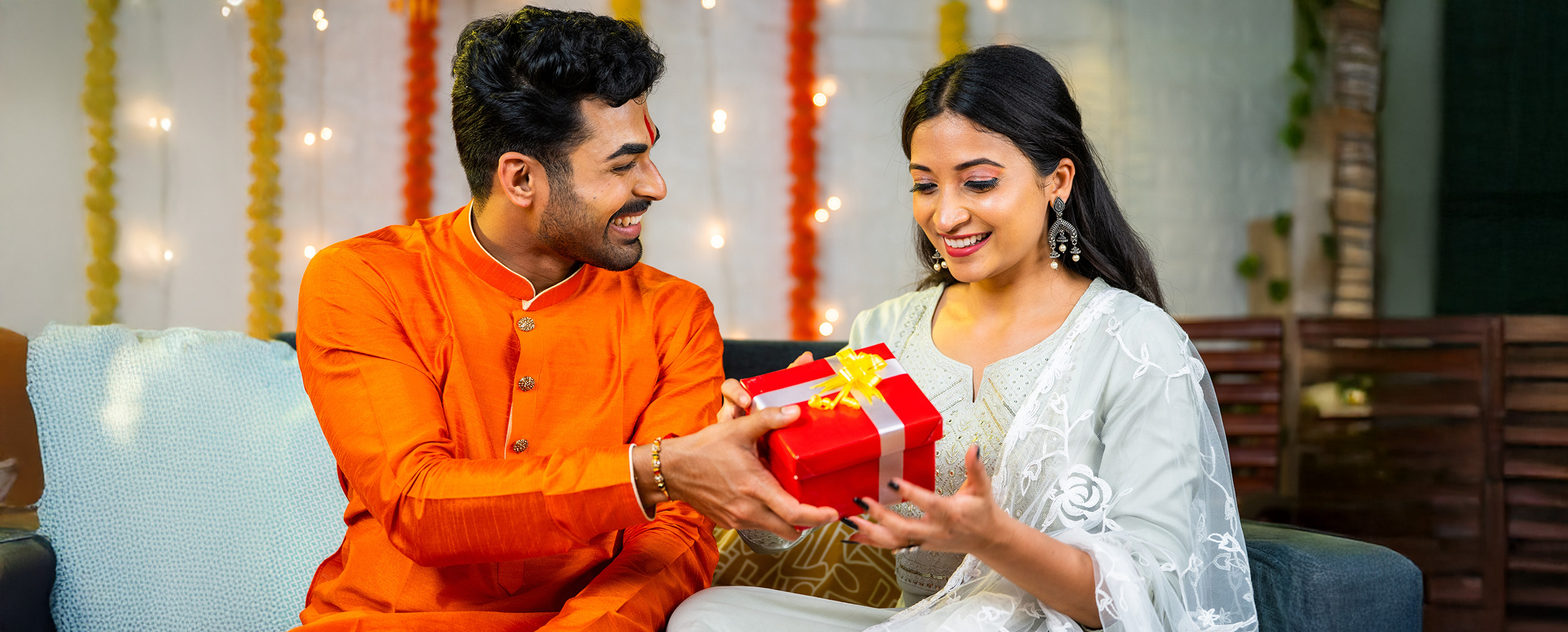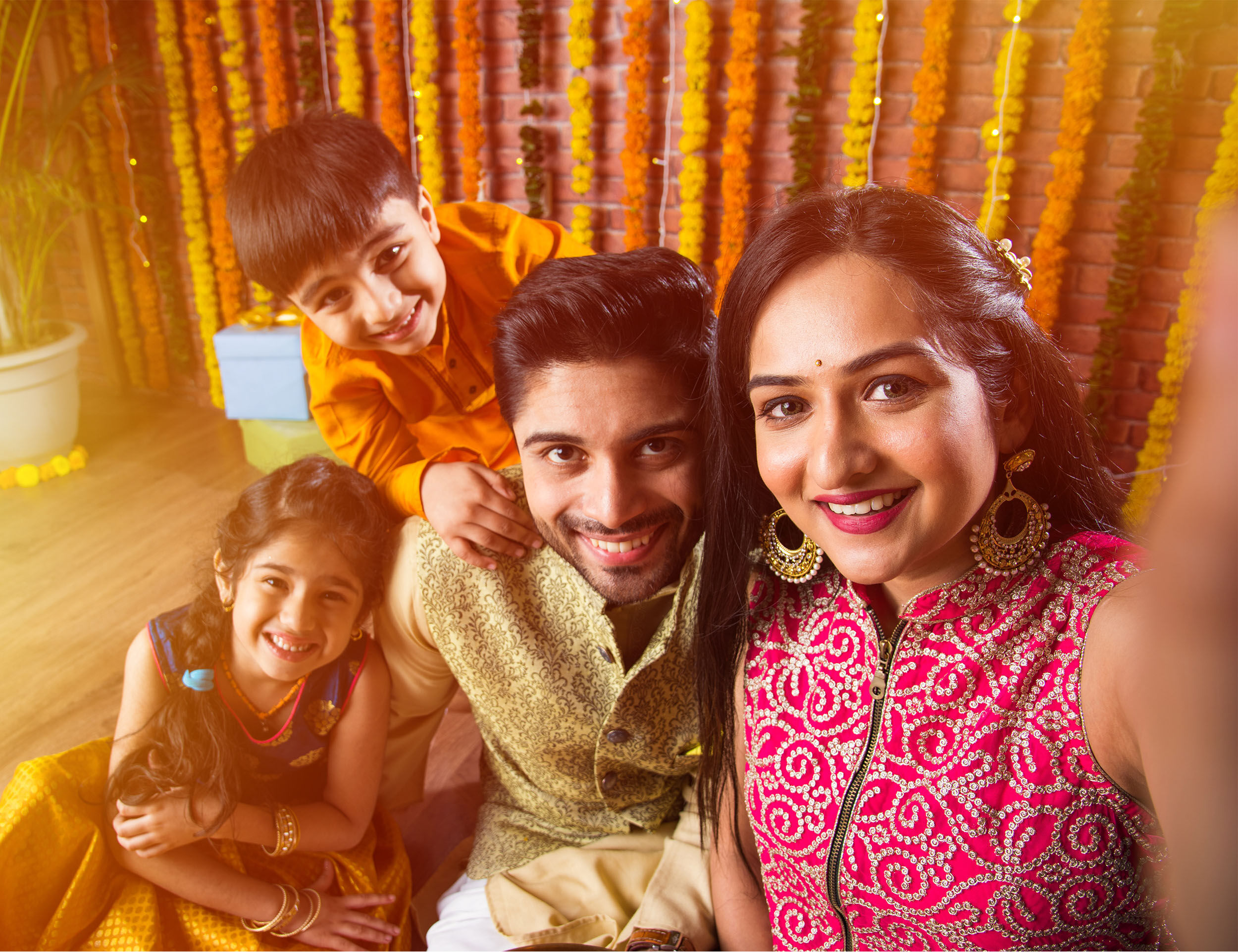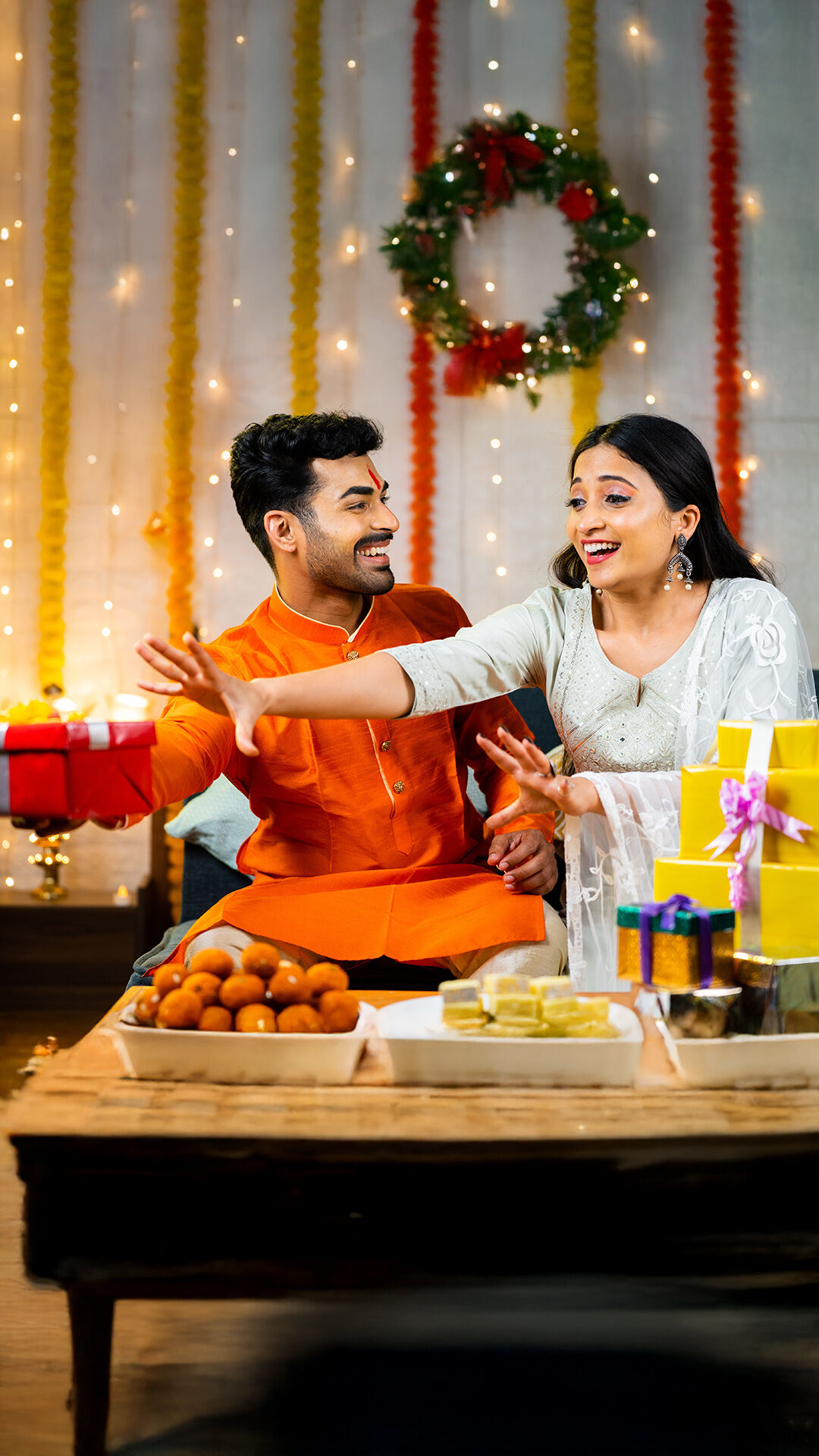STORIES BY MANYAVAR & MOHEY

Lifestyle
From Ancient Tales to Modern Ties: The Colourful Raksha Bandhan History Through Ages
Date 27 June 2025 Reading time: 7-10 mins
Raksha Bandhan is a beloved festival in India, steeped in tradition and celebrated with heartfelt enthusiasm. The Raksha Bandhan history traces a fascinating path through ancient myths, historical events, and cultural practices. This celebration, which honours the bond between siblings, has origins that span centuries, making it a rich subject of exploration.
To fully grasp what is the history of Raksha Bandhan, one must examine its legendary beginnings, key figures, and evolving significance. This article explores key questions like who started Raksha Bandhan and traces how Raksha Bandhan started as rooted in mythology, history, and cultural practice.
The Origin of Raksha Bandhan: A Historical Perspective
Raksha Bandhan is rooted in a blend of mythology and historical anecdotes, with no definitive answer to who started Raksha Bandhan. One prominent tale involves Lord Krishna and Draupadi from the Mahabharata. When Krishna cut his finger, Draupadi bandaged it with a strip of her saree, and in gratitude, Krishna vowed to protect her. This exchange is often cited as a foundational moment in understanding how Raksha Bandhan started—a ritual symbolising protection and care.
Another mythological story features Indra and his wife Sachi. During a battle against demons, Sachi tied a sacred thread, blessed by Vishnu, around Indra’s wrist, ensuring his triumph. This act highlights the protective origins of the festival, adding depth to the history behind Raksha Bandhan. Over time, these tales evolved, shifting the focus toward sibling relationships.
Historically, the festival gained prominence through royal acts. In the 16th century, Rani Karnavati of Mewar sent a rakhi to Emperor Humayun, seeking his aid against invaders. This gesture broadened the festival’s scope, embedding it in India’s socio-political fabric and enriching its history.
Raksha Bandhan History in India: The Cultural Significance
Raksha Bandhan in India reflects its profound cultural importance, uniting families across diverse communities. Sisters tie rakhis—decorative threads—on their brothers’ wrists, praying for their prosperity, while brothers pledge lifelong protection. This exchange embodies the festival’s core values of love and duty, making it a cornerstone of Indian heritage.
Beyond its Hindu roots, Raksha Bandhan resonates with Jains, who tie rakhis to their priests, and Sikhs, who use it to strengthen community ties. This adaptability underscores the history behind Raksha Bandhan as a unifying force, transcending religious and regional lines. In India, the festival remains a vibrant celebration of familial and social bonds.
Raksha Bandhan History in Kannada: Regional Variations
In Karnataka, Raksha Bandhan intertwines with local customs, offering a unique perspective on its heritage. The Raksha Bandhan history in Kannada aligns with “Avani Avittam,” a Vedic ritual where sacred threads are renewed. Sisters tie rakhis to their brothers amidst prayers, blending spirituality with festivity.
Wearing traditional dresses for women, such as vibrant sarees, adds grace and cultural charm to the occasion, while men often opt for elegant kurta pajamas that reflect festive spirit. These regional traditions deepen the festival’s narrative, showing how local practices contribute to its broader history in India.
Raksha Bandhan History in Hindi: The Legends and Folklore
In Hindi-speaking regions, Raksha Bandhan is enriched with folklore that shapes its identity. The Raksha Bandhan history in Hindi includes tales like that of Goddess Lakshmi and King Bali. Lakshmi tied a rakhi to Bali, securing a divine favour, which reinforced the festival’s protective theme.
The story of Rani Karnavati and Humayun also resonates here, illustrating the rakhi’s role in forging alliances. These narratives, woven into oral traditions, illuminate what is the history of Raksha Bandhan, portraying it as a ritual of loyalty and safeguarding.
Raksha Bandhan History in English: A Global Perspective
As Raksha Bandhan spreads beyond India, its story finds expression in global contexts. The history of Raksha Bandhan in English has been shared through literature and media, introducing the festival to international audiences. In countries like Australia, Canada, and the UK, Indian diaspora families uphold the tradition with rakhi ceremonies and cultural programs.
This worldwide embrace reflects the universal appeal of Raksha Bandhan's history, transforming it into a celebration of siblinghood that transcends borders and cultures.
Raksha Bandhan History in Telugu: The Traditions and Rituals
In Andhra Pradesh and Telangana, Raksha Bandhan, or “Rakhi Purnima,” is marked by heartfelt rituals. The Raksha Bandhan history in Telugu features sisters tying rakhis and performing aarti for their brothers, who offer gifts in return. Sweets like ariselu add sweetness to the occasion.
Women often accessorise with women’s accessories, such as gold jewellery, enhancing the festive mood. These customs highlight how regional flavours enrich the history behind Raksha Bandhan, preserving its essence while adding local flair.
The Evolution of Raksha Bandhan Over the Years
Raksha Bandhan has evolved significantly, adapting to changing times while retaining its core meaning. How Raksha Bandhan started as a priestly ritual of protection has shifted to a sibling-centric tradition. Historical moments, like the Karnavati-Humayun alliance, reveal its diplomatic past, broadening its significance.
Today, the festival embraces inclusivity, with rakhis exchanged among friends and neighbours to promote unity. This evolution ensures that the understanding of what is the history of Raksha Bandhan remains vibrant and dynamic, honouring its ancient origins while embracing modern significance.
The Modern Interpretation of Raksha Bandhan
In its contemporary form, Raksha Bandhan blends tradition with modernity. Who started Raksha Bandhan?—whether gods or historical figures—laid a foundation that now supports diverse interpretations. Beyond siblings, the festival includes extended family and friends, symbolising mutual respect.
Digital innovations, such as e-rakhis and online gifting, connect loved ones across distances. Yet, the festival’s timeless message of protection and love persists, ensuring that how Raksha Bandhan started continues to inspire new generations.
The Enduring Legacy of Raksha Bandhan
The Raksha Bandhan history is a tapestry of myths, historical acts, and cultural shifts. From divine promises to royal alliances, it has grown into a global celebration of human connection. Questions like who started Raksha Bandhan and what is the history of Raksha Bandhan uncover a rich tradition that continues to thrive through its deep meaning and adaptability.
Raksha Bandhan’s legacy endures because it honours the bonds that define us, uniting people across time, space, and cultures with a simple thread and a profound promise.
Whether you're celebrating with elaborate rituals or simple gestures, remember that you're participating in one of India's most enduring cultural traditions. And as you prepare for the festivities, discover the perfect festive attire for this special occasion with Manyavar's Raksha Bandhan collection and Mohey for women's attire designed to honour heritage and contemporary style in equal measure.







